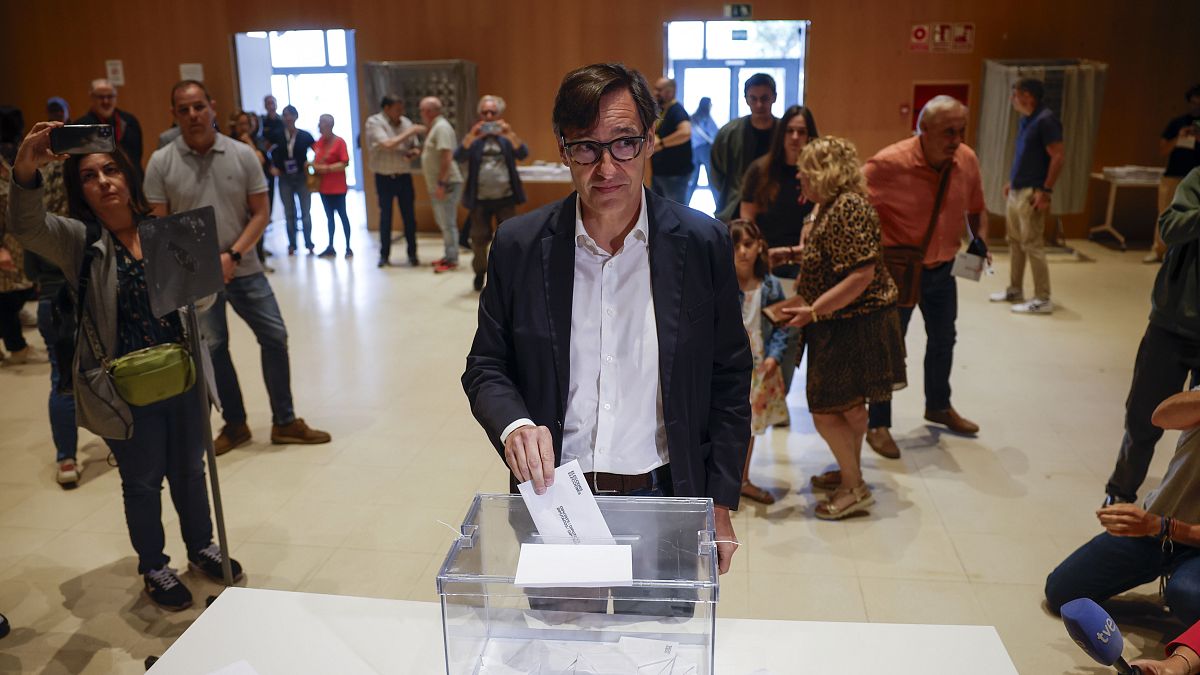The recent election in Catalonia has signaled a potential shift in power away from the separatist parties that have dominated the region for years. The pro-union Socialist Party, led by former health minister Salvador Illa, achieved a historic victory by securing 42 seats, up from 33 in the previous election. This result falls short of the 68 seats needed for a majority, but it marks a significant change in the political landscape of Catalonia. Illa has expressed his intentions to become the next president of Catalonia, signaling a new era for the region under Socialist leadership.
The Socialist Party will need to engage in negotiations with other parties to secure enough support to form a government. Although a hung parliament or new elections are possible outcomes, there is a path for Illa to reach the necessary 68 seats. By building alliances with other parties, particularly those from the leftist camp, the Socialists may be able to establish themselves as the ruling party in Catalonia. The surge in support for the Socialist Party is seen as a positive development for Prime Minister Pedro Sánchez and the Socialists ahead of the upcoming European Parliament elections.
The decline in support for separatist parties in Catalonia is evident in the results of the recent election. The Republican Left of Catalonia, led by sitting regional president Pere Aragonès, saw a significant drop in seats from 33 to 20. This shift in support away from the separatist camp has opened up opportunities for other parties, such as the Popular Party, which gained 15 seats in the election. The far-right, Spanish ultra-nationalist party Vox maintained its 11 seats, while the far-left, pro-secession Cup saw a decrease in seats from nine to four. Additionally, a new pro-secession, far-right party called Catalan Alliance entered the chamber for the first time with two seats.
The prevailing concerns among Catalans, aside from independence, have shifted towards issues such as the crippling drought affecting the region. A recent survey by Catalonia’s public opinion office revealed that 50% of Catalans are against independence, compared to 42% in favor. This decline in support for independence indicates a changing sentiment among the population, reflecting a shift away from the separatist agenda that has dominated Catalan politics in recent years. The election results show that Catalonia is not immune to the far-right wave sweeping Europe, as evidenced by the rise of parties such as Catalan Alliance, which advocate against unauthorized immigration and the Spanish state.
Despite facing logistical challenges such as the disruption of Catalonia’s commuter rail service during the election, over 3.1 million people cast their votes, with a participation rate of 57%. The outcome of the election underscores the shifting political landscape in Catalonia and the potential for a new era of governance under the leadership of the Socialist Party. With negotiations underway to form a government, the future of Catalonia’s political landscape remains uncertain, but the recent election results indicate a significant departure from the separatist stronghold that has characterized the region for years. As Catalonia navigates this period of change, the outcome of the election has the potential to reshape the region’s political trajectory and relationships with the rest of Spain.











